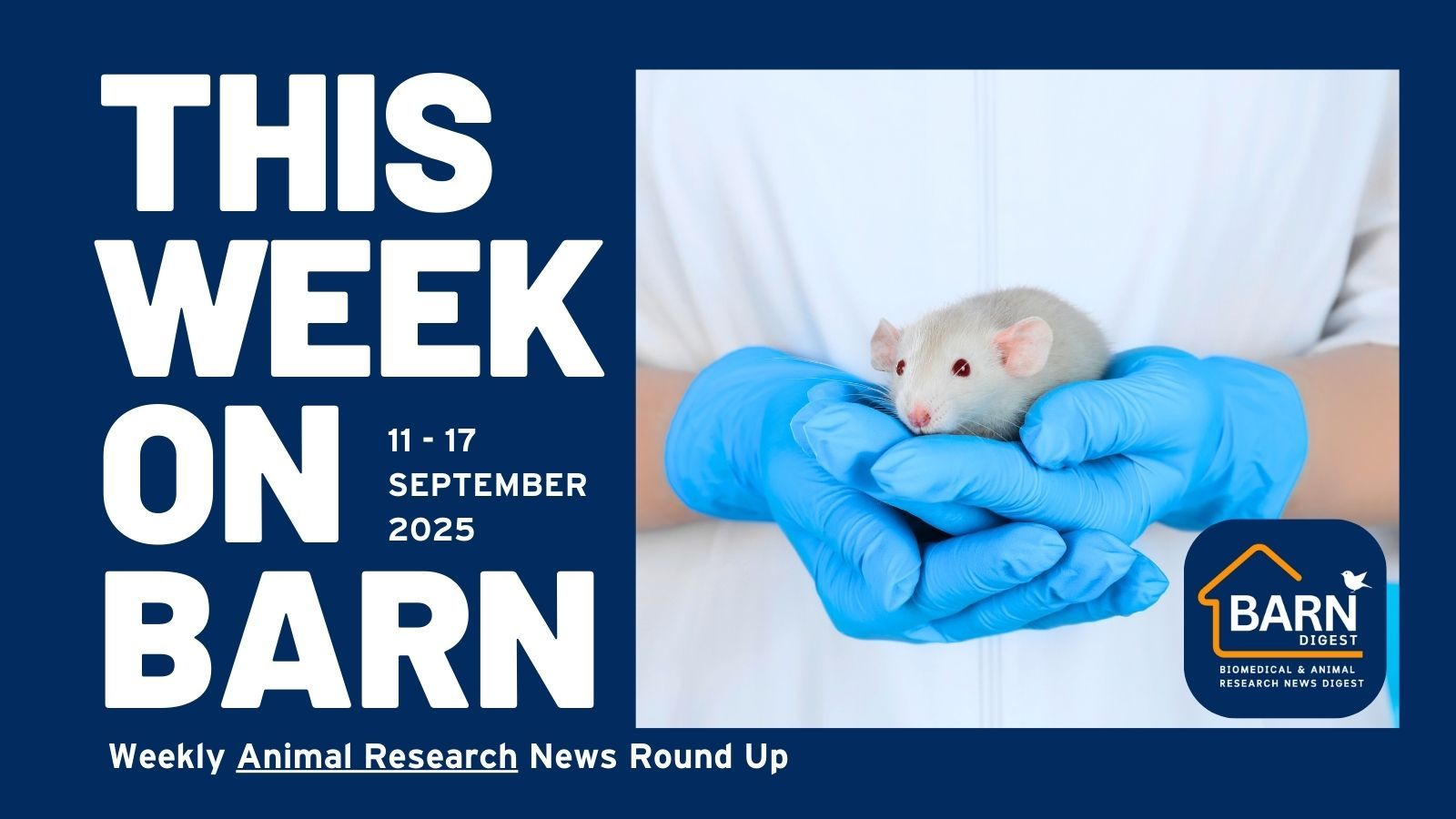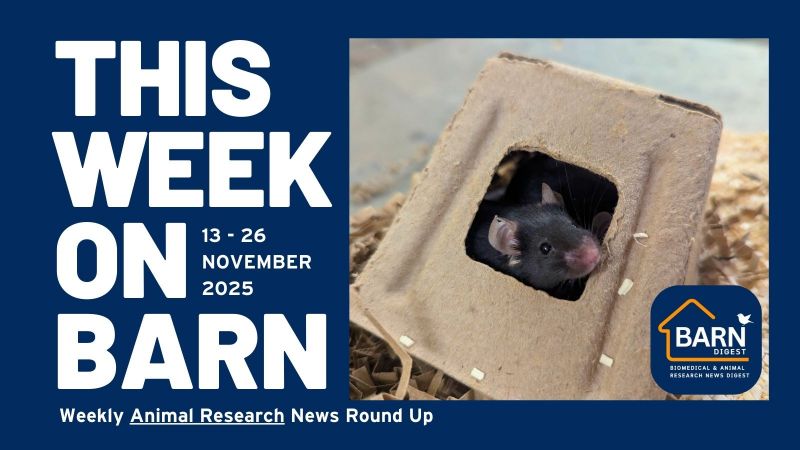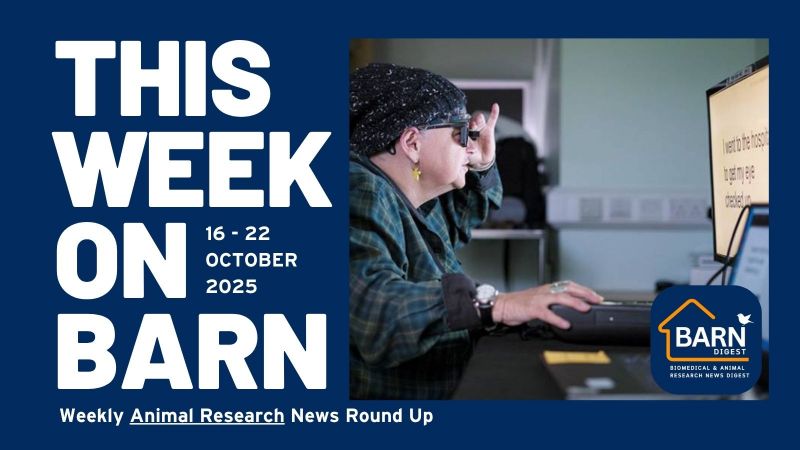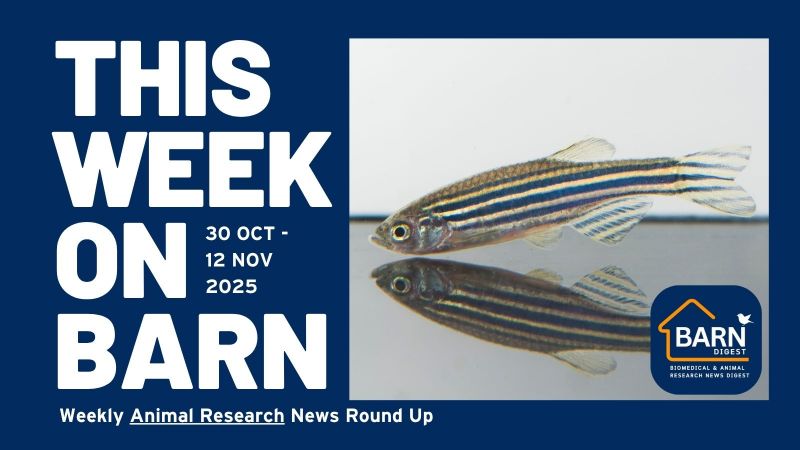
The Biomedical Animal Research News (BARN) Digest collates animal research news from UAR’s 150+ member organisations into one, easy to access, feed. These animal research related stories include topics such as: medical studies and advancements; animal welfare and 3Rs news; funding, regulatory, and policy news; and conservation and environmental research that involves animal testing.
Each week, we pick the most interesting, groundbreaking, and important news to feature in a weekly news roundup. In this round up we feature news stories from 11 - 17 September 2025.
View BARN to see daily news updates from UAR members.
DISCOVERY / BASIC RESEARCH
Immune system changes affecting sensory nerves could cause fibromyalgia
KING'S COLLEGE LONDON, UNIVERSITY OF LIVERPOOL | MICE
"Alongside chronic pain and fatigue, many people with fibromyalgia experience a range of sensory abnormalities.
The King’s researchers, alongside University of Liverpool collaborators, believe that these symptoms are caused by changes in nerve cells in the body, specifically ‘mechanoreceptors’, which are specialised cells that send signals in the body to detect touch.
To investigate this theory, the scientists isolated antibodies from patients with fibromyalgia. These antibodies were injected into mice and their behaviour analysed. Those that had been administered the antibodies showed increased sensitivity to light touch and cold. Those that had been injected with antibodies from healthy participants were unaffected.
By recording electrical signals from nerves, the team showed that fibromyalgia antibodies altered ‘firing’ of mechanoreceptors, making many of these touch sensors also respond to cold temperature. The scientists then translated these findings to humans."
https://www.kcl.ac.uk/news/immune-system-changes-affecting-sensory-nerves-could-cause-fibromyalgia
New and recent breast cancer breakthroughs
WORLD WIDE CANCER RESEARCH | MICE
Discovering how a high-fat diet could influence the spread of breast cancer:
"Dr Héctor Peinado and his team at the Spanish National Cancer Research Centre (CNIO) have been investigating how triple-negative breast cancer spreads to the lungs. They found that mice with a high fat diet had important molecular changes in their lungs that appear to promote cancer spread."
Breakthrough in tackling aggressive breast cancer:
"Curestarter researchers in Manchester have made an exciting discovery about HER2+ breast cancers, which are particularly hard to treat. Dr Cathy Tournier and her team have found a potential new way to overcome treatment resistance.
By blocking a molecule called ERK5, they were able to stop cancer cells in mice from dividing. Tumours grow and spread because of cells dividing uncontrollably so stopping cancer cells dividing would stop cancers in their tracks. "
FUNDING FOR CLINICAL STUDIES BASED ON ANIMAL RESEARCH DISCOVERIES
Further funding for pioneering approach to slow or stop Parkinson’s
PARKINSON'S UK | RATS, HUMANS
"We’ve awarded Cellestial Health £55,000 to continue exploring networks of brain cells that may hold answers for new treatments for Parkinson’s.
We funded Cellestial Health back in 2023 to investigate whether networks of astrocytes could be restored using a drug treatment. The results suggested that, in a rat model of Parkinson’s, it was possible to successfully deliver a safe and effective treatment that could protect networks of cells.
The next step is to see whether this could work for people with Parkinson’s."
https://www.parkinsons.org.uk/news/further-funding-pioneering-approach-slow-or-stop-parkinsons
REPLACING ANIMALS IN RESEARCH
Incorporating NAMs into medicines development: Insights from regulators, industry and academia
NC3RS, ABPI, MHRA | NEW-APPROACH METHODOLOGIES (NAMS)
"Report from the NC3Rs, in collaboration with the ABPI and MHRA, explores how New Approach Methodologies (NAMs) can transform the way medicines are developed – harnessing cutting edge human-relevant technologies and reducing reliance on animal testing."
Visit BARN for daily news updates
Last edited: 20 October 2025 13:20




